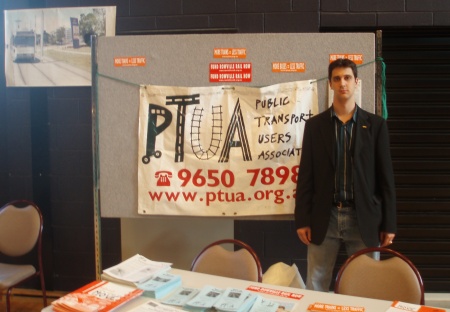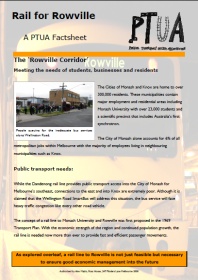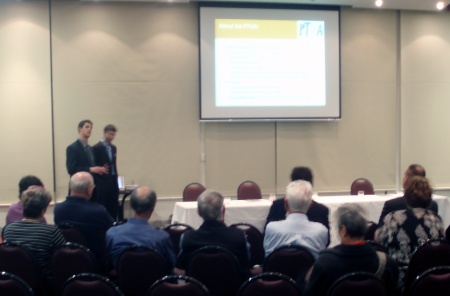The Maroondah Leader has reported on the policy announcements delivered by the Victorian Liberal Party and the ALP to abolish zone three:
TRANSPORT costs will be slashed for outer-suburban commuters, including many Maroondah residents, whoever wins the November election.
Both the Bracks Government and Liberal Opposition last week pledged to scrap Zone 3 and switch to a two-zone system next year.
Maroondah City Council, as part of the Eastern Transport Coalition, had campaigned endlessly for the abolition of zone three.
Public Transport Users Association spokesman and Maroondah councillor Alex Makin said the news was “a victory for the outer-east community”.
“It’s something residents in conjunction with the Eastern Transport Coalition were campaigning for,” Mr Makin said. “We welcome the Opposition announcement and the carbon copy released by the Bracks Government.”
Four years ago when the Opposition pledged to abolition zone three the Bracks Government, through its Transport Minister Peter Batchelor, claimed that “capacity constraints” meant that the policy was ‘unworkable’ (Libs promise fare cuts to outer areas, The Age, Nov 7, 2002. pg. 9). Like other claims of ‘capacity constraints’ (such as being unable to deliver the South Morang rail extension or Rowville rail line), it is clear that such constraints are purely fabricated to excuse inaction.
The Opposition is to be congratulated for taking the lead on seeking to abolish one of the gross inequities that had existed in the pricing of Melbourne’s public transport system.



